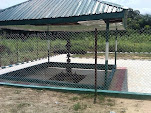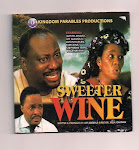HOW DRINKING ZOBO,KUNU FROM REUSED PLASTIC BOTTLES ENDANGERS HEALTH
ZOBO (Hisbiscus) and kunu drinks mean different things to Nigerians depending on their position within the social strata in society. While the rich may consume the popular drinks for pleasure or for medical benefit, they serve as alternative to expensive meals for poor Nigerians- most of whom survive on less than a dollar per day.
Recently a concerned Nigerian Vivian Nuhu expressed concern about an incident she witnessed on a visit to a sick friend in the hospital.
Vivian told Vanguard how she had visited a friend diagnosed with tuberculosis and he handed her a plastic bottle filled with a mixture of saliva and blood to disposed at the hospital dump site
After disposing the bottle, to her amazement, she saw a woman, who, obviously was waiting by the corner for her, rushed to the dump, emptied the plastic bottle she had just dropped and tucked it into a polythene bag already filled with at least a dozen plastic bottle
When Vivian accosted the elderly-looking woman, she admitted that she collects such plastic containers and sells to those who trade in zobo and kunu outside the hospital premises as a way of augmenting her merger salary.
Knowing however, the health implication, I stopped the woman. But how many have gone unchecked like that for years and so many innocent people have fallen sick and even died from unknown causes.
“I understand that people, especially the poor will be affected by my story because many depend on businesses like this that do require big capital to earn a living. But nothing come close to the sanctity of human lives” she said, ‘I know it’s a divisive story but it’s a story that need to be told.
Medical expert say consuming drink in reused plastic bottle sourced from unverified sources pose serious health risk. Risk of contracting diseases such as tuberculosis, hepatitis and even cholera, Dr. Tunji Oyebanji, of federal Medical Center, Yobe, ‘It is not advisable to take drinks in reused plastic containers because you cannot verify how clean the drink are. One can be infected with diseases like tuberculosis, hepatitis and typhoid. You have to be sure of the hygiene level of the seller if you must take such drink. I think it is even better to abstain completely.
Using hot water to wash such containers is not advisable, because even though water at 75 degrees centigrade might kill some germs, certain cancerous substances can melt into the container under such high temperature and increase health risk to the consumer
Now according to Samuel Ojone, a microbiologist with Niger-Delta University: Not all microorganisms are allergic to or feel the detrimental effect of alkaline detergent solution ( from soap and detergent) Organisms have the ability to go into spore formation when threatened with immerse heat.
Heating is not a sterilization process, it is a disinfection process. So there is no assurance that it will eliminate all microbial lives. The moment they come to favorable environment, such as culture like zobo and kunu because of their sugar content, they become active again.
Taking bottle from hospitals is a wrong idea and a wrong entirely wrong location because some organisms can cause nosocomial infections ( infection transmitted in hospital) And there is the possibility that some microorganisms might have come in contact with the vessels
Further investigation revealed that most traders of zobo and kunu are women of low-income usually widows and females who are the breadwinners of their respective families
Asabe Usman, a zobo and kunu trader in Qwallameji, a suburb of Bauchi LGA when told the health implication of collecting used plastic containers from unknown sources, told Vanguard that she ensure all bottles were washed with detergent, hence no need to find out where they were sourced from. She said she buy used containers from a woman who supplies them. She informed our sources that her husband is old and sick and that she used the profit to take care of her family
Vanguard visited the consumer protection council (CPC) now known as Federal Competition and Consumer Protection Commission (FCCPC) to inquire if the authorities are aware of the unhealthy practice. The Head, Consumer Education at the zonal headquarter in Bauchi, Audu Durkwa Burka sais the commission is not focusing on unregistered businesses yet, but assure that he will report the issue to the headquarters in Abuja and obtain approval to organize awareness campaigns and training in collaboration with the National Orientation Agency (NOA) to equip people in the business with knowledge and skills to offer better products and services
As we wait for this government agency to do the needful, we therefore use this communication to plead to all to take special attention and for the sake of Christ be good!!!!!!!!!!!!!!!!!
ZOBO (Hisbiscus) and kunu drinks mean different things to Nigerians depending on their position within the social strata in society. While the rich may consume the popular drinks for pleasure or for medical benefit, they serve as alternative to expensive meals for poor Nigerians- most of whom survive on less than a dollar per day.
Recently a concerned Nigerian Vivian Nuhu expressed concern about an incident she witnessed on a visit to a sick friend in the hospital.
Vivian told Vanguard how she had visited a friend diagnosed with tuberculosis and he handed her a plastic bottle filled with a mixture of saliva and blood to disposed at the hospital dump site
After disposing the bottle, to her amazement, she saw a woman, who, obviously was waiting by the corner for her, rushed to the dump, emptied the plastic bottle she had just dropped and tucked it into a polythene bag already filled with at least a dozen plastic bottle
When Vivian accosted the elderly-looking woman, she admitted that she collects such plastic containers and sells to those who trade in zobo and kunu outside the hospital premises as a way of augmenting her merger salary.
Knowing however, the health implication, I stopped the woman. But how many have gone unchecked like that for years and so many innocent people have fallen sick and even died from unknown causes.
“I understand that people, especially the poor will be affected by my story because many depend on businesses like this that do require big capital to earn a living. But nothing come close to the sanctity of human lives” she said, ‘I know it’s a divisive story but it’s a story that need to be told.
Medical expert say consuming drink in reused plastic bottle sourced from unverified sources pose serious health risk. Risk of contracting diseases such as tuberculosis, hepatitis and even cholera, Dr. Tunji Oyebanji, of federal Medical Center, Yobe, ‘It is not advisable to take drinks in reused plastic containers because you cannot verify how clean the drink are. One can be infected with diseases like tuberculosis, hepatitis and typhoid. You have to be sure of the hygiene level of the seller if you must take such drink. I think it is even better to abstain completely.
Using hot water to wash such containers is not advisable, because even though water at 75 degrees centigrade might kill some germs, certain cancerous substances can melt into the container under such high temperature and increase health risk to the consumer
Now according to Samuel Ojone, a microbiologist with Niger-Delta University: Not all microorganisms are allergic to or feel the detrimental effect of alkaline detergent solution ( from soap and detergent) Organisms have the ability to go into spore formation when threatened with immerse heat.
Heating is not a sterilization process, it is a disinfection process. So there is no assurance that it will eliminate all microbial lives. The moment they come to favorable environment, such as culture like zobo and kunu because of their sugar content, they become active again.
Taking bottle from hospitals is a wrong idea and a wrong entirely wrong location because some organisms can cause nosocomial infections ( infection transmitted in hospital) And there is the possibility that some microorganisms might have come in contact with the vessels
Further investigation revealed that most traders of zobo and kunu are women of low-income usually widows and females who are the breadwinners of their respective families
Asabe Usman, a zobo and kunu trader in Qwallameji, a suburb of Bauchi LGA when told the health implication of collecting used plastic containers from unknown sources, told Vanguard that she ensure all bottles were washed with detergent, hence no need to find out where they were sourced from. She said she buy used containers from a woman who supplies them. She informed our sources that her husband is old and sick and that she used the profit to take care of her family
Vanguard visited the consumer protection council (CPC) now known as Federal Competition and Consumer Protection Commission (FCCPC) to inquire if the authorities are aware of the unhealthy practice. The Head, Consumer Education at the zonal headquarter in Bauchi, Audu Durkwa Burka sais the commission is not focusing on unregistered businesses yet, but assure that he will report the issue to the headquarters in Abuja and obtain approval to organize awareness campaigns and training in collaboration with the National Orientation Agency (NOA) to equip people in the business with knowledge and skills to offer better products and services
As we wait for this government agency to do the needful, we therefore use this communication to plead to all to take special attention and for the sake of Christ be good!!!!!!!!!!!!!!!!!





